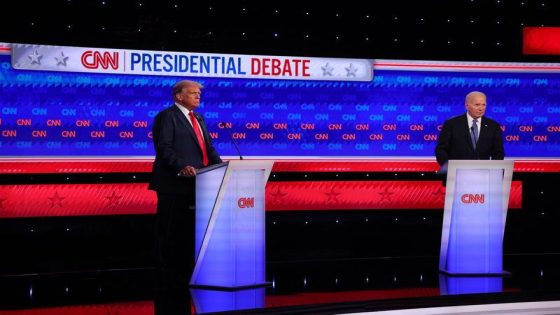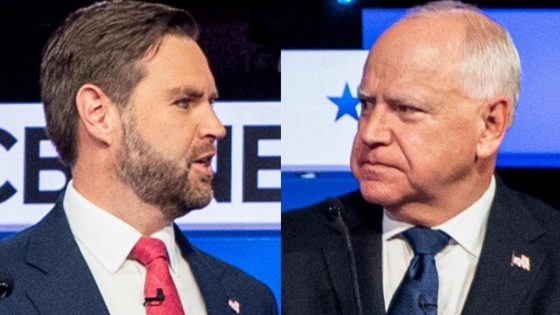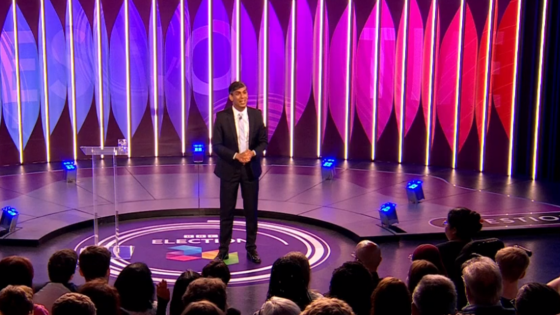ATLANTA (Reuters) -Democratic President Joe Biden and his Republican rival Donald Trump traded attacks on abortion, immigration and their handling of the economy early in their debate on Thursday night, giving voters a rare side-by-side look at the two oldest candidates ever to seek the U.S. presidency.
Biden, sounding hoarse and tentative at times, stumbled over his words on several occasions during the debate’s first half-hour, while Trump rattled off one attack after another that included several well-worn falsehoods, including claims that migrants have carried out a crime wave and that Democrats support infanticide.
Biden, 81, and Trump, 78, were under pressure to display their command of issues and avoid verbal gaffes as they sought a breakout moment in a race that opinion polls show has been deadlocked for months. Biden, in particular, has been dogged by concerns about his age and sharpness, while Trump’s incendiary rhetoric and sprawling legal woes remain a vulnerability.
Two White House officials said Biden had a cold.
As the debate unfolded, Biden appeared to hit his stride, delivering attack lines with more focus. At the halfway mark, he referred to Trump’s conviction for covering up hush money payments to porn star Stormy Daniels for the first time, calling him a “felon.”
In response, Trump brought up the recent conviction of Biden’s son, Hunter, for lying about his drug use to buy a gun.
Asked about the Jan. 6, 2021, attack on the U.S. Capitol by a mob of Trump supporters, the former president refused to accept any responsibility and claimed that many of those arrested were innocent.
“This guy has no sense of American democracy,” Biden scoffed in response.
At the halfway point of the 90-minute debate, Biden said: “There’s a reason why 40 of his 44 top cabinet officers refused to endorse him this time. His vice president hasn’t endorsed him this time. Why? They know him well, they served with him. Why are they not endorsing him?”
Biden also blamed Trump for enabling the elimination of a nationwide right to abortion by appointing conservatives to the U.S. Supreme Court, an issue that has bedeviled Republicans since 2022.
Trump retorted that Biden would not support any limits on abortions and said that returning the issue to the states was the right course of action.
Trump said Biden had failed to secure the southern U.S. border, ushering in scores of criminals.
“I call it Biden migrant crime,” he said.
Biden replied, “Once again, he’s exaggerating, he’s lying.”
Studies show immigrants do not commit crimes at a higher rate than native-born Americans.
The televised clash on CNN was taking place far earlier than any modern presidential debate, more than four months before the Nov. 5 Election Day.
The two candidates appeared with no live audience, and their microphones automatically cut off when it was not their turn to speak – both atypical rules imposed to avoid the chaos that derailed their first debate in 2020, when Trump interrupted Biden repeatedly.
As the debate began, the two men – who have made little secret of their mutual dislike – did not shake hands or acknowledge one another.
The first questions focused on the economy, as polls show Americans are dissatisfied with Biden’s performance despite wage growth and low unemployment.
Biden acknowledged that inflation had driven prices substantially higher than at the start of his term but said he deserves credit for putting “things back together again” following the coronavirus pandemic.
Trump asserted that he had overseen “the greatest economy in the history of our country” before the pandemic struck and said he took action to prevent the economic freefall from deepening even further.
POLARIZED NATION
The debate takes place at a time of profound polarization and deep-seated anxiety among voters about the state of American politics. Two-thirds of voters said in a May Reuters/Ipsos poll that they were concerned violence could follow the election, nearly four years after a mob of Trump supporters stormed the U.S. Capitol.
Trump took the stage as a felon who still faces a trio of criminal cases, including to his efforts to overturn the 2020 election. The former president, who persists in falsely claiming his defeat was the result of fraud, has suggested he will punish his political enemies if returned to power, but he will need to convince undecided voters that he does not pose a mortal threat to democracy, as Biden asserts.
Biden’s challenge was to deliver a forceful performance after months of Republican assertions that his faculties have dulled with age.
While national polls show a tied race, Biden has trailed Trump in polls of most battleground states that traditionally decide presidential elections. Just this month he lost his financial edge over Trump, whose fundraising surged after he was criminally convicted of trying to cover up hush money payments to porn star Stormy Daniels.
Neither Biden nor Trump is popular and many Americans remain deeply ambivalent about their choices. About a fifth of voters say they have not picked a candidate, are leaning toward a third-party candidate or may sit the election out, the latest Reuters/Ipsos poll showed.
“They’re horrible candidates,” said Kathy Elder, a 59-year-old sales manager who voted for Trump in 2016 before switching to Biden in 2020.
Elder, who planned to watch the debate, said she cringes whenever they speak – for different reasons.
When it comes to Biden, she said, “Can he speed this up and actually talk?” As for Trump, she said, “What the hell is going to come out of his mouth?”
Trump’s niece Mary Trump, who has been critical of her uncle, will join Biden’s campaign in its media spin room following the debate, a campaign official said.
Several contenders to be Trump’s vice presidential pick – North Dakota Governor Doug Burgum and U.S. senators J.D. Vance and Marco Rubio – traveled to Atlanta and were expected to make Trump’s case in the post-debate spin room.
The second and final debate in this year’s campaign is scheduled for September.
See a Reuters photo slide show of previous debates.
(Reporting by Helen Coster, additional reporting by James Oliphant, Doina Chiacu, Stephanie Kelly, Nathan Layne and Steve Holland; Writing by Joseph Ax and Andy Sullivan; Editing by Scott Malone, Ross Colvin, Kieran Murray, Howard Goller and Alistair Bell)
Source Agencies




